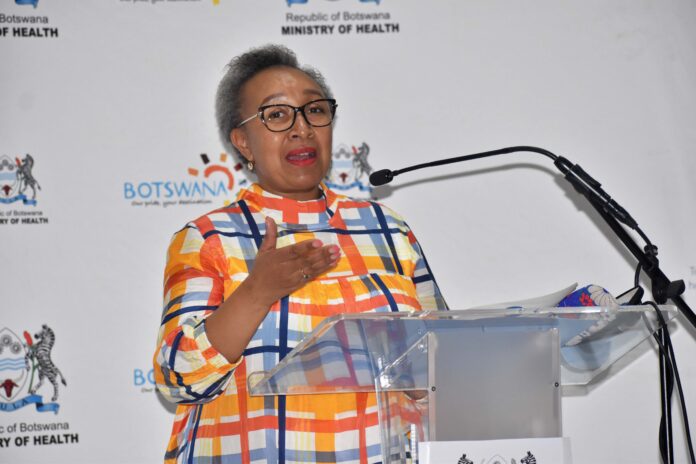Sello Motseta
23rd April 2024
Botswana joined hands with nations across the globe to commemorate the launch of the Expanded Program on Immunization (EPI) and reinforce the importance of vaccination in safeguarding communities against infectious diseases.
Established in 1974 by the World Health Organization (WHO), the Expanded Programme on Immunization has been instrumental in delivering life-saving vaccines to millions of people worldwide, significantly reducing the burden of vaccine-preventable diseases.
Permanent Secretary in the Ministry of Health, Professor Oatlhokwa Nkomazana, said “The country has over the years prided itself with coverage above 80% to 90% for most vaccines, leading to a significant decrease in Vaccine Preventable Disease(VDP’s).”
She said, “Use of vaccines is one of the greatest scientific innovations that have proven to be a cost effective public health strategy, that has significantly decreased childhood morbidity and mortality. Vaccines are also responsible for huge reduction in the incidence of many diseases including measles, tetanus and others.”
Nkomazana revealed that the Expanded Program on Immunization (EPI) has encountered formidable challenges including disorganization within the immunization program, constrained by limited human, infrastructure and capital resources. Restricted access to vaccines, stemming from their limited availability has resulted in a drop in vaccination coverage, exarcebated by an insufficient number of skilled personnel to effectively carry out immunization activities.
“As a Ministry, we believe that for us to achieve better health outcomes, we should prioritize primary health care. Vaccines are part of that approach because they help protect our people against vaccine preventable diseases, thus allowing communities to live happier and healthier lives,” said Nkomazana.
Since the inception of Botswana’s national immunization program in 1979, the country has achieved significant milestones in immunization coverage. This anniversary recognizes the program’s successes in eradicating vaccine diseases such as smallpox, whooping cough, diphtheria and polio.
Through sustained collaboration with international partners, healthcare professionals, and local communities, Botswana continues to enhance vaccination coverage, bolstering immunity and protecting vulnerable populations. As Botswana celebrates EPI@50, it reaffirms its dedication to strengthening immunization efforts nationwide. Today Botswana proudly inaugurates African Vaccination Week, a continent-wide initiative aimed at promoting immunization awareness and uptake.
This annual event serves as a pivotal platform to emphasize the critical role of vaccines in disease prevention, mortality reduction, and the promotion of healthier societies throughout Africa. The African Vaccination Week gives the Ministry of Health (MoH) an opportunity to reach children who missed out on routine vaccines, to restore essential immunization coverage to the pre-COVID-19 era.
The commemoration also helps strengthen primary health care to deliver immunization, and build lasting protection in communities. Therefore, Ministry of Health(MoH) has urged parents and caregivers to take children 0 – 59 months to their nearest health facility this week to catch up on any missed vaccines.
Dr Joan Matji, UNICEF Representative in Botswana, said “In Eastern and Southern Africa, we have experienced a 6% decline in child immunization coverage compared to pre-COVID times, with over 4.6 million children missing out on life saving vaccines in the last three years, especially the marginalized and poorest communities Botswana has not been spared in respect to the declining coverage of childhood vaccinations.”
She said, “The vaccination level of all childhood vaccines fell short of 70% coverage, which is a mark commonly used for herd immunity, thereby showing a gap that needs to be closed urgently for the survival and thriving of Batswana children.”









